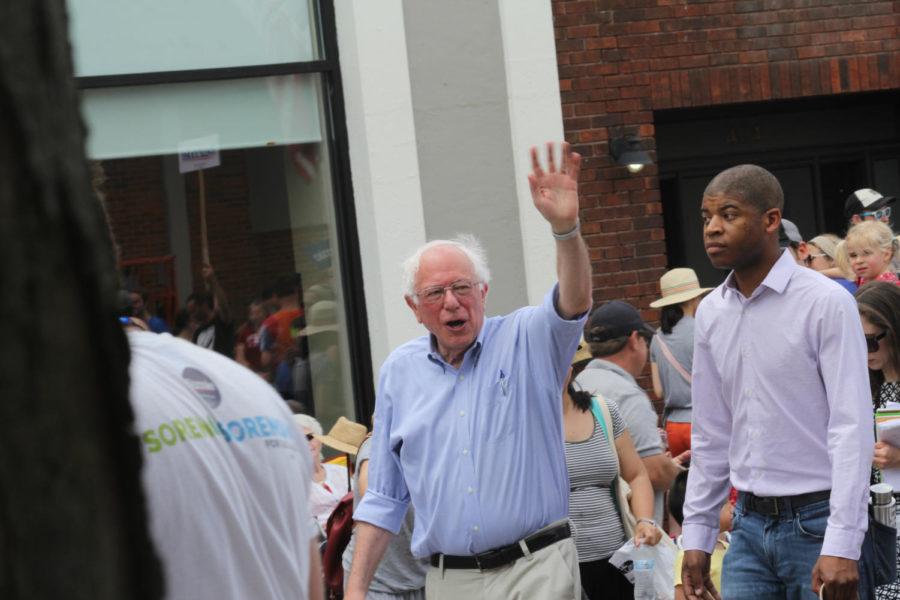Johnson: Primaries fuel the incumbency advantage
Grant Tetmeyer/Iowa State Daily
Democratic presidential candidate Sen. Bernie Sanders waves to parade-goers during the City of Ames 4th of July parade. The parade featured local businesses as well as representatives from other political campaigns.
August 28, 2019
This presidential primary cycle that has seemingly gone on forever has seen a plethora of democrats with varied and unique backgrounds going to battle for the White House. With the country extremely divided on partisan divides, this elongated and strenuous process has potentially exposed the shortcomings that come up in the primary process in general.
The multitude of candidates in the race for democrats have provided a wide array of personalities, policy positions and ideologies that have changed where the party stands significantly, but there is an underlying electorate in key parts of the country that may not be swayed by this new rise of the ideological left in the party.
When doing electoral college math, the most important states for democrats are clearly Wisconsin, Michigan and most importantly, Pennsylvania. Unless the extremely unlikely situation happens where Texas and only one of these three states goes blue without the other two coming with them, these three states as a trio are the tipping point for this upcoming election.
The way the primary system makes winning the blue collar demographics that will be needed to win these states difficult is by forcing the same candidate that needs to appeal to California, New York and Iowa democrats to also appeal to these swing voters in key states.
Sure, this is always the case, but in a primary class that is chock full of favorites, it makes it difficult when you look at it from the individual candidates’ perspectives. Candidates are having to be competitive within the party electorate while also remaining appealing to these voters.
This is the main argument of democrats who are not fully on board with the more liberal policy proposals that Sen. Bernie Sanders brought into the mainstream in the 2016 cycle.
While I personally disagree with this sentiment, I do recognize that for a large majority of the population the positions taken by prominent farther left candidates are on issues like health care and immigration. It is worrisome as someone who does not wish that Trump be reelected that the Democratic Party may nominate someone who won’t win enough votes in the right places.

















